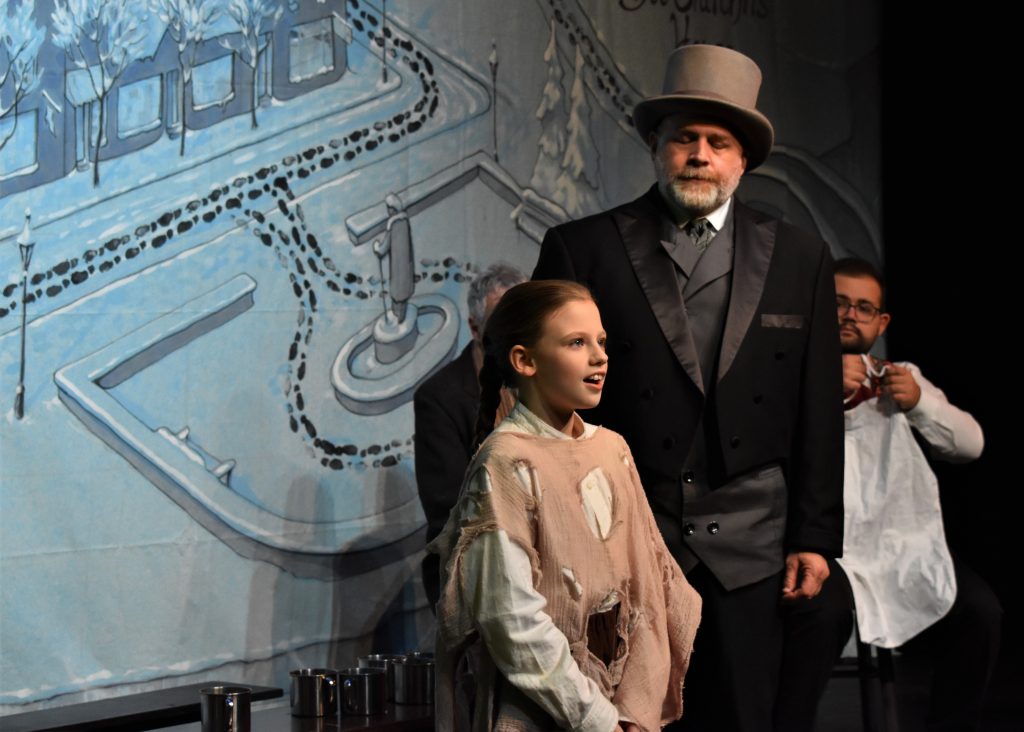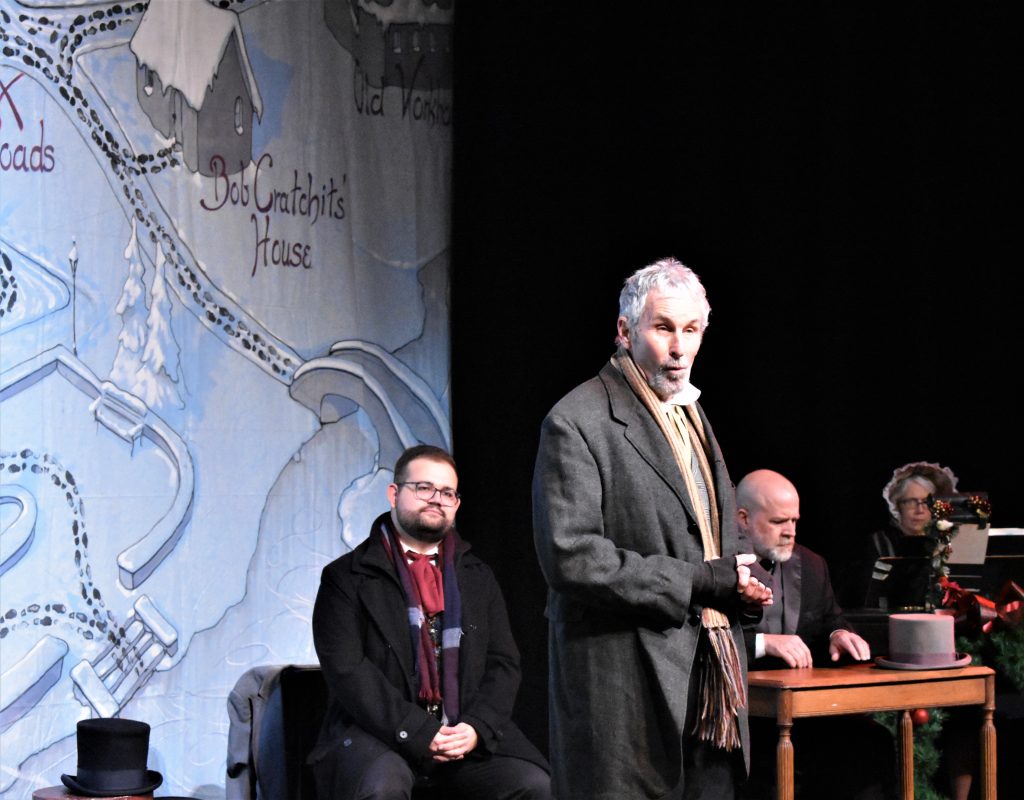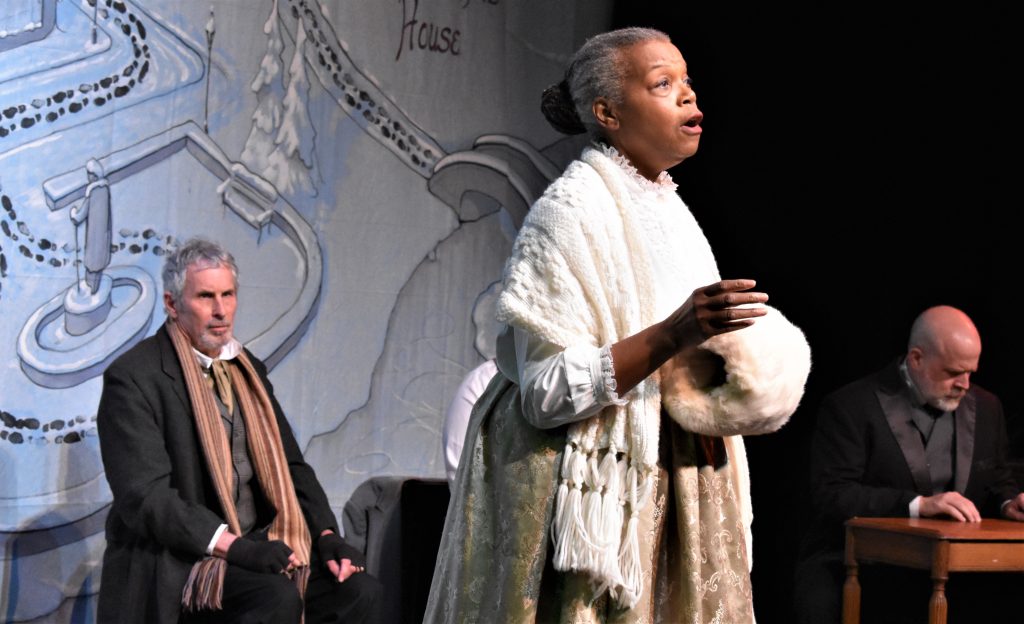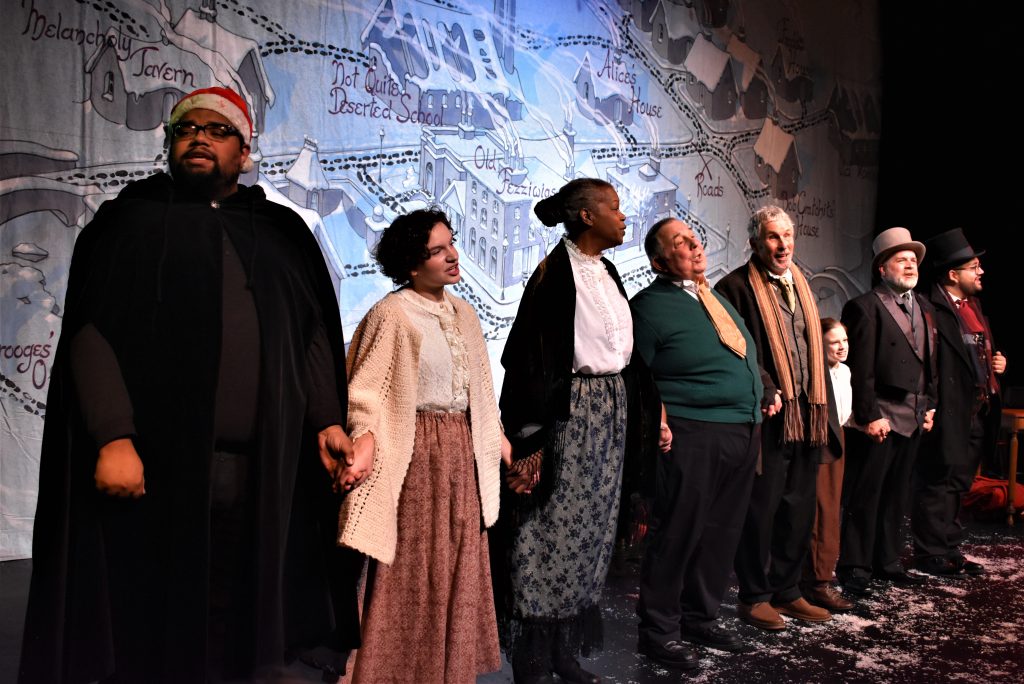
by Kevin T McEneaney
While a novelist, Charles Dickens had an intense interest in theater, especially for his children where he would act out, playing various roles in short one-man plays before his children or favored guests. His short story of Christian conversion from the worship money to philanthropy, “A Christmas Carol,” now exists in well over a dozen dramatic presentations.
At The Center for Performing Arts in Rhinebeck, Lou Trapani has performed the character Scrooge to the delight of the neighborhood venue for nearly two decades. Every year the Center attempts to present a fresh version of the Dickens classic, so beloved by sentimentalists and especially children, who may find their first experience of dramatic catharsis in Dickens.
The current version running at The Center offers an ensemble musical version where actors—in solos, duets, trios, or group—sing Christmas holiday songs amid the trajectory of the famous story. In theory, this appears to be a boon: tragic story with happy Christian reversal from the naïve perspective of a young child, Tiny Tim.

The whole cast sang amazingly well, both as individuals, and in groups. Special tonal kudos to Jovan Bradley, Duane Joseph Olson, Ellie DeMann, Jody Satriani for their voices; Andy Crispell, who delivers a memorable monologue song wit suffering integrity, and young Harriet Luongo for her charming acting, as well as Rik Lopes who plays convincingly the “heavy” (Scrooge) in a practical manner rather than depressed, bipolar naïf. Joanne Schubert (on period-sounding harpsichord electronic keyboard) was flawless. Jody Satriani delivered a heartfelt solo for the poor. Ellie DeMann’s emotionally distraught solo will strangley linger in your memory. Costume Design by Donna Letteri is excellent.
I was amused by the clever scenic backdrop painting: instead of bustling London where the story is set, we have a small rural town in England, as in the hymn “In the Bleak Midwinter” which honors the Nativity as a personal event in the small Gloucestershire village of the music composer (text by Christina Rossetti, music Gustav Holst). The scenic backdrop featured a map of a rural town with locals like The Melancholy Tavern and Not Quite Deserted School, along with the polluting factory and rural river bridge.
Numerous traditional Christian hymns like “Angels we have heard on high” and semi-secular carols like “Joy to the World” are ably voiced, and sometimes superbly sung by the cast, which is itself a reason to attend. Yet the singing of these standard favorites provides digression from the vector of the Dickens drama of repentance and conversion—the result being merely formal observance (as in some religious liturgies), rather than dramatic catharsis. Amid the communal lilt, the personal grit of the comedy vanishes into impersonal gesture. The emotional spotlight of Tiny Tim dims to minor generic pathos amid the communal panorama. The theme of social justice is proposed by Jody but rejected dismissively by Scrooge. (In the U.S. the theme of social justice was invented by white people for poor white people in subsidized housing, from which the government explicitly excluded black people).

This production is eminently suitable for youngsters from five to ten years old, if they can remain responsibly seated in the theater. This production offers children a bird’s eye-view of the holiday season and its focus on generosity while adults revel in the exquisite singing.
Veteran Lou Trapani is Author/Producer/Director of this novel version of the Dickens classic, which run on weekends through December 26. For more information visit: https://www.centerforperformingarts.org/whats-playing
